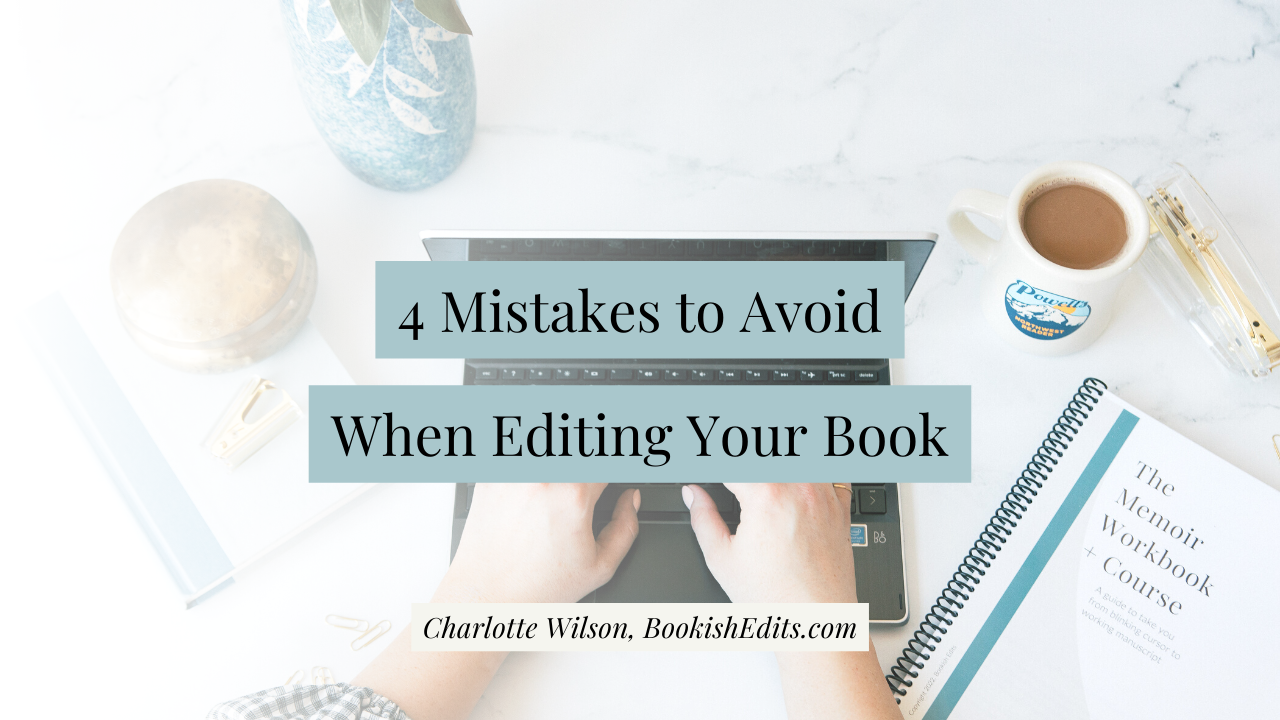4 Mistakes to Avoid When Editing Your Book
The towel bar in the bathroom was the worst. It was one of those dinky standard towel bars that came with the house, and my kids never got their damp bath towels over the bar. The towels were always on the floor. I had bought a set of hooks from IKEA months before, and the unopened package had been sitting in my closet ever since. One day my kids were in the bath, and I felt a spurt of motivation that had me digging through the garage for power tools and screws. Within fifteen minutes the towel bar was gone, replaced with a set of hooks perfectly placed for my small children. I rarely have to step on damp towels now.
Editing your memoir won’t happen in fifteen minutes, but you do have to start. And once you start, you’ll be so glad you did. As you muster the motivation to start that edit, keep these pitfalls in mind.
Waiting too long
It’s the bathroom towel bar principle: You don’t want that first draft, brimming with potential, to languish for too long. Of course, you might have a manuscript gathering digital dust in your files (we all will at some point). If you recently finished your first draft, don’t wait too long before diving in to revisions; and if you’ve been putting it off and putting it off, you’re never too late to start. Once you find a groove and make improvements, you might start wondering what took you so long.
Not waiting long enough
Let’s stretch this bathroom towel bar metaphor just a little more. Think about the last time you moved and of all of the little projects that piled up. I’m the person who moves, makes the list, and then lets the list marinate for a month or twelve. But maybe you’re the person who goes, goes, goes until everything is checked off—or until you crash. And chances are that the quality of those projects isn’t great if your brain is short-circuiting from overwhelm. If you don’t give yourself a beat after finishing your draft and revisions, you’ll risk burnout. And editing in burnout isn’t going to produce quality results. Give yourself a beat before tackling those edits.
Reading only in your head
One of my best tips for self-editing is to read your manuscript out loud. Reading out loud slows your brain down and helps you catch typos, weird sentences, and structural problems easier than if you just read it in your head. (And with AI technology, you could even have your computer read your manuscript back to you!)
Equating beta readers with an editor
Beta readers are great. Enlisting feedback from regular readers is valuable information that is crucial in the editing process—but a beta reader is not an editor. An editor has professional training and specialized skills that they apply to your words to make them better. An editor is an objective partner who works for both you and the reader. You as the writer can make many improvements self-editing and with beta-reader feedback, but it won’t yield the same result as working with a trained, professional editor.
The editing and revision stage of writing is a mammoth task, and by avoiding these mistakes, you set yourself up for more improvement, less overwhelm, and a rush of confidence.
PS—Are you finding it hard to make the time to edit? You might like my free download Time to Write. Everything I go over in this resource is equally applicable to edits and revisions! Head here to download your copy.


